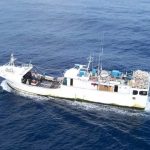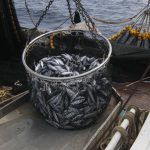Fleet of fishing boats are waiting for the opening of the bluefin tuna season to net swarms of bluefin tuna before the catching season ends in mid-June. On the other hand environmental campaigners are waiting too, their binoculars and monitoring devices trained not on the sea but on the trawlers. Oliver Knowles, a campaigner for Greenpeace, said that they are also wants them to start fishing.
Greenpeace wants a moratorium on bluefin tuna fishing and has sent two ships to the Mediterranean to try to disrupt the hunt. Knowles said that unless they raise the political temperature on this, and get them to stop, they can come back year after year after year. At any one time there are a dozen or more vessels in an area large enough for them to remain out of sight of each other. From France, Spain, Turkey and elsewhere.
The fishing waiting to start catching prized possession fish carry net cages used to encircle the tuna swarms, which are then towed offshore to be fattened and shipped in giant freezer ships to Japan, where it is a mainstay of sushi and sashimi.
Earlier this year the European Union and the United States attempted to ban the trade of the species, but Japan lobbied successfully and the proposal was defeated. But now the main aim of the protecting the species returned to the open waters until the tuna season ends on June 15. Greenpeace refuses to divulge what kind of tactics it might employ.
Audun Lem, a fishery trade expert at the Food and Agriculture Organisation, told that most scientists thought the quotas were higher than they should be. Massimo Spagnolo, who heads a research institute close to the fishing industry, said that if everyone respected their quota then there should have an improvement. He added that quotas are not a good idea because they encourage early and intensive fishing before the tuna can actually spawn, believes ICCAT has overstated the danger facing the species.








